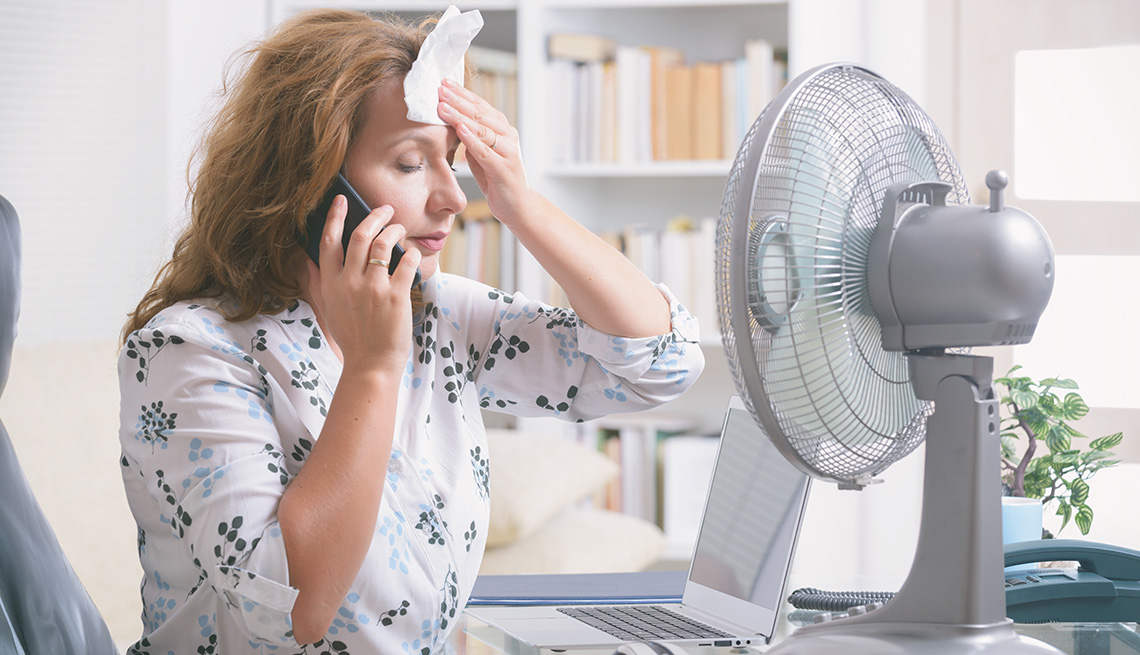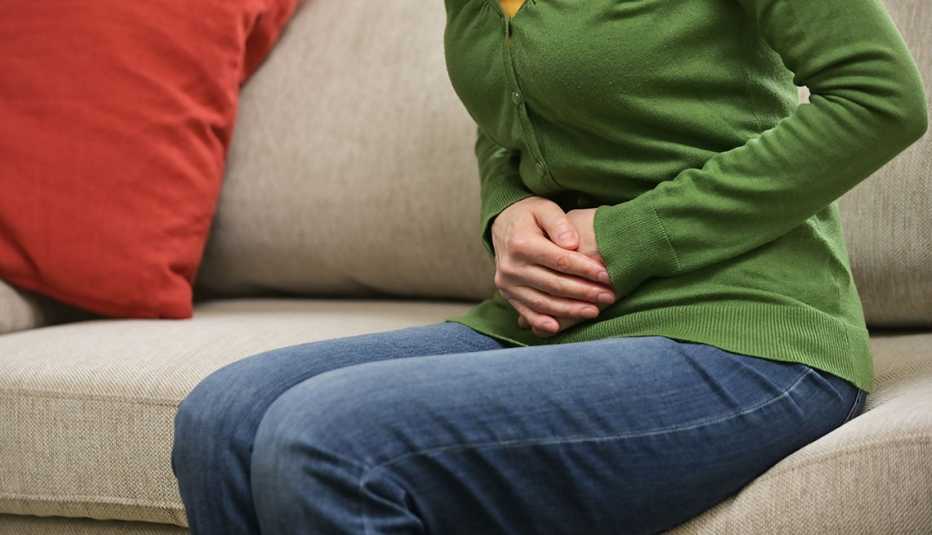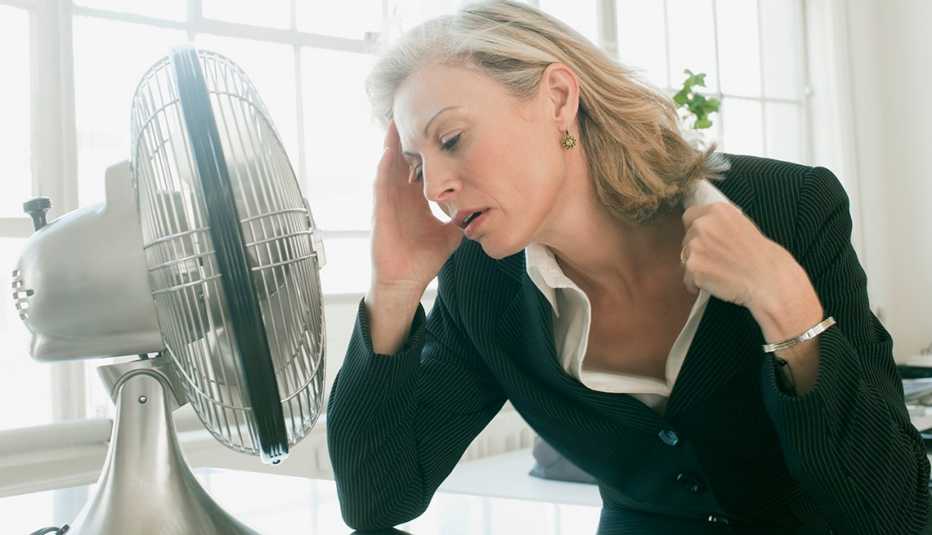AARP Hearing Center
Here’s a hot news flash: A vegan diet that includes a healthy dose of soybeans may help reduce moderate to severe hot flashes experienced by postmenopausal women. That’s according to a recent study published in the North American Menopause Society’s journal Menopause.
The study included postmenopausal women who experienced two or more hot flashes a day. Half were assigned a low-fat vegan diet that included half a cup of cooked soybeans daily. The others were asked to maintain their normal diet. Over a 12-week period, the researchers found moderate to severe hot flashes were reduced by 88 percent in the group assigned the vegan diet, compared with 34 percent in the control group. The results were about as effective as hormone replacement therapy for reducing menopausal hot flashes, according to the researchers.
If this new research holds up, it could help provide relief to the millions of women who suffer from hot flashes, especially since the U.S. Preventive Services Task Force reiterated this week in the medical journal JAMA that hormone replacement therapy is not recommended for use in prevention of chronic conditions such as heart disease.
Although the task force did not evaluate safety in the use of the medications for hot flashes, the report says that the use of combined estrogen and progestin is linked with risk of breast cancer, stroke, dementia, gallbladder disease and urinary incontinence. The U.S. Food and Drug Administration recommends that women use menopause hormone therapy at the lowest dose and for the shortest time it's needed, so dietary changes could be a good solution.
“We do not fully understand yet why this combination works, but it seems that these three elements are key — avoiding animal products, reducing fat and adding a serving of soybeans,” lead researcher Neal Barnard, M.D., an adjunct professor at the George Washington University School of Medicine, said in a statement.
Theories about soybeans for menopausal health
The role diet may play in postmenopausal women experiencing hot flashes, flushes or night sweats is not new. Historically, scientists have seen a low prevalence of these vasomotor symptoms in Japan, China and rural Mexico, where traditionally the diet has been rich in grains, legumes and vegetables. Moreover, the researchers note that in Japan a shift toward a more Westernized diet (between the 1980s and early 2000s) coincided with an increase in reports of hot flashes — rising from about 15 to more than 40 percent of menopausal women.









































































